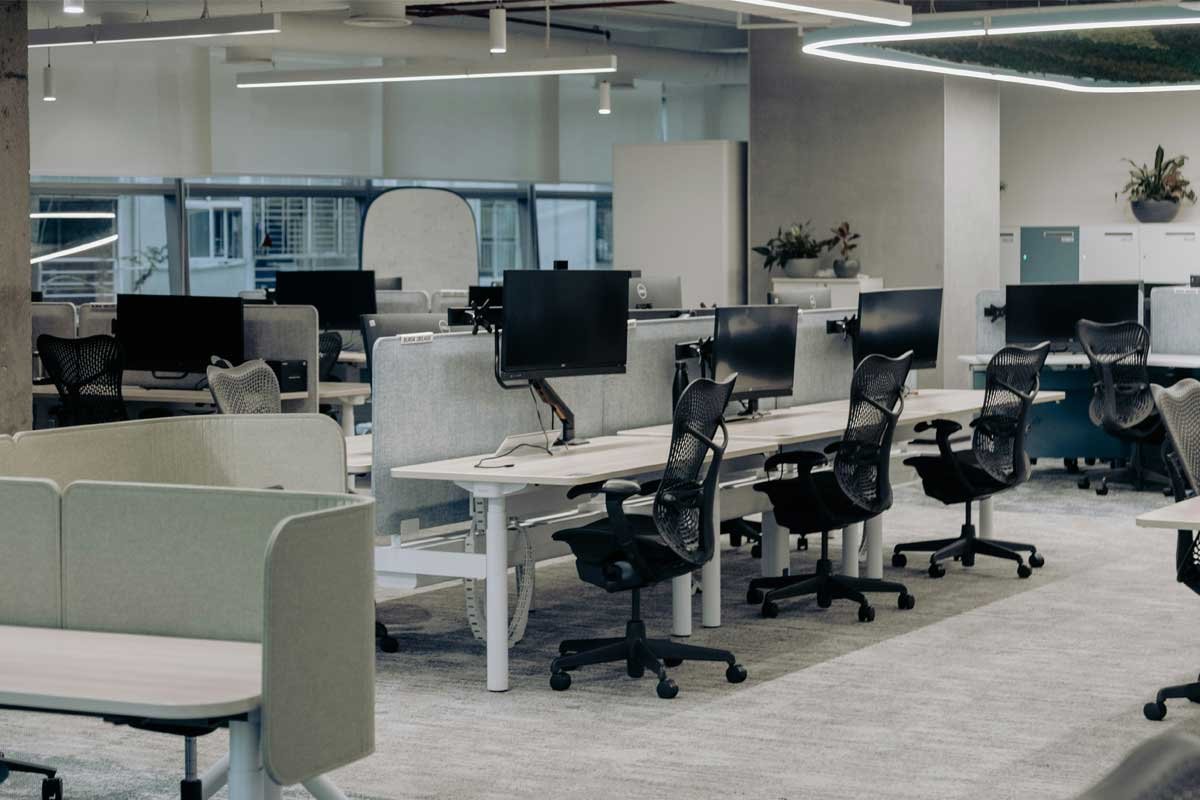When businesses look to furnish their office space, renting vs buying office furniture can significantly impact their finances. Both options come with their own set of advantages and trade-offs, and understanding these can help businesses make an informed choice that aligns with their needs and budget.
Sustainability and Cost Efficiency
Renting office furniture can also be a more sustainable option, particularly when choosing used & recycled desks and chairs. Many rental companies offer refurbished furniture as part of their inventory, supporting a circular economy and reducing the demand for new resources. Businesses that rent eco-friendly office solutions can enhance their environmental credentials while cutting costs.
Opting for second-hand or recycled furniture also helps companies contribute to reducing waste. This approach lowers expenses and aligns with growing corporate social responsibility efforts, particularly for companies looking to adopt greener business practices.
Flexibility and Cost Management
Renting office furniture provides businesses with flexibility—ideal for those navigating growth, relocations, or temporary changes. Rather than making a long-term commitment to expensive furniture, renting allows businesses to scale up or down based on their current circumstances easily. A growing company can quickly rent additional chairs, desks, and storage, while a downsizing business can return surplus furniture, avoiding financial losses tied to ownership.
The cost management benefits are another attractive feature of renting. Buying furniture requires a large initial investment, which can strain cash flow, especially for startups. However, renting spreads the cost over manageable monthly payments, which can be easier on the budget, and frees up funds for other essential business areas.
Maintenance and Upgrades
Renting office furniture often comes with the added benefit of maintenance services, which are usually included in the rental agreement. This eliminates unexpected repair costs and ensures that the furniture is in good condition throughout the rental period. Chairs and desks that see frequent use can wear out, but with a rental contract, businesses won’t need to worry about replacing or repairing damaged items.
Renting also allows businesses to stay up-to-date with the latest trends and ergonomic designs without the need for large outlays. As design and workplace standards evolve, businesses can refresh their office with newer, more comfortable furniture at the end of a rental term.
Depreciation and Asset Management
Buying furniture means dealing with depreciation. Office furniture loses value over time due to wear and tear, evolving design preferences, and changes in office needs. When a business no longer requires the furniture, selling it can be a challenge, often resulting in a lower resale value than anticipated.
Renting eliminates the hassle of managing depreciating assets. Once the rental term is over, the furniture is simply returned, allowing the business to focus on what it does best without worrying about the value of old furniture. This can be particularly helpful for businesses that frequently update their office space or those that want to avoid the administrative burden of managing physical assets.
Long-Term Financial Considerations
While renting offers short-term flexibility and cost control, buying furniture can be more advantageous over the long term for businesses with stable office needs. Once purchased, the furniture is owned outright, meaning there are no ongoing rental fees, which can be a significant saving over time.
However, it’s important to consider other long-term costs that come with buying, such as maintenance, repairs, and potential storage needs. In some cases, businesses may find that the freedom to own and modify their furniture outweighs the regular payments associated with renting. On the flip side, companies with more unpredictable office requirements or those expecting changes in office layout may still benefit more from the flexibility that renting provides.
Key Takeaway
Deciding whether renting vs buying office furniture ultimately depends on the specific needs of the business. Renting offers clear financial advantages in terms of flexibility, lower upfront costs, and reduced maintenance responsibilities. However, for businesses with more predictable, long-term office setups, buying may prove more economical in the long run.
By carefully weighing the costs and benefits of each option, businesses can make a decision that best supports their financial goals and operational strategy. Whether choosing to rent for flexibility or buying for ownership, the key is to align the furniture solution with the company’s current and future needs.


